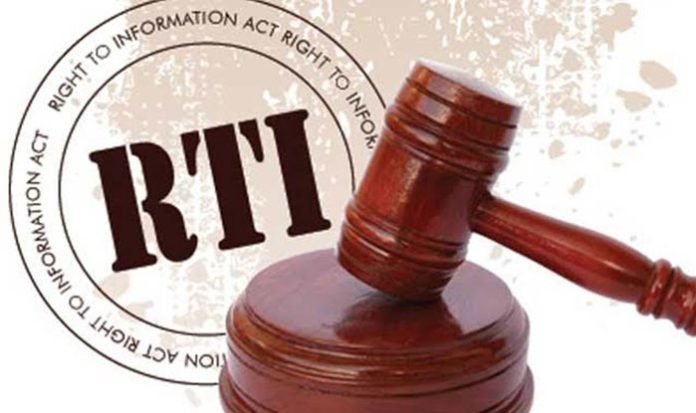Latest amendment to RTI Bill problematic – Coalition
The Coalition on the Right to Information (RTI) Ghana, the Media Coalition on RTI and Occupy Ghana; collectively known as the Coalition have raised concerns over the new amendment to the Bill.
Parliament last week approved an amendment to the RTI Bill which seeks to extend the date for the commencement of the Bill after it is passed.
The amendment states that the Bill has to take effect in the next succeeding year after it is approved by Parliament and assented to by the President.
But according to the group who wants the RTI passed as soon as possible, the latest amendment is “problematic and likely to cause unnecessary delay in the implementation of the overdue 25-year-old constitutional right.”
“The Coalition on the Right to Information (RTI) Ghana, the Media Coalition on RTI and OccupyGhana (altogether the “Coalition”) have taken note of Parliament’s decision to accept a new commencement clause that will technically activate the implementation of the expected RTI Act 2019 in January 2020. Similar to our position on a proposal by Mr Frederick Opare Ansah, Honourable Member of Parliament for Suhum, we consider the current amendment to the RTI Bill problematic and likely to cause unnecessary delay in the implementation of the overdue 25-year-old constitutional right.”
Coalition’s recommendations over the amendment
The Coalition argued that instead of extending the commencement date for the infrastructure and various offices that will implement the bill to be established, “the [supplementary] budget can [instead] be varied to make provision for expenditures not anticipated. The Ministry of Finance can use virements to reallocate money as well as make proposals for approval in a mid-year supplementary budget.”
“Second, we find it worrying that the Bill has not proposed a defined schedule of what will be done between the period when it gets assented to by the President and the beginning of the next financial year. Having a clear transitional schedule or provisions two enshrined in the law has been the pathway that the countries of the World that were cited by Mr Kyei-Mensah-Bonsu in his argument on the floor of House have taken”, the statement added.
The back and forth
The Right to Information Bill was first drafted in 1999 under former president, Jerry John Rawlings.
Various advocacy groups emerged to press for the immediate passing of the bill into law in 2002 and reviewed in 2003, 2005 and 2007.
The National Democratic Congress (NDC) in its 2008 and 2012 election manifestos promised to ensure the Bill was passed. In 2010, it was presented to Parliament for consideration.
In 2011, the government signed unto the Open Government Partnership (OGP) Initiative with a commitment to pass the law. In November 2013, the Bill was formally laid before parliament.
Former Attorney General, Deputy Dominic Ayine in 2015, moved the Bill for second reading in Parliament. In October 2016, the Bill was withdrawn and replaced with a new one which was immediately laid.
Following the dissolution of the Sixth Parliament of the Fourth Republic and the swearing-in of new Parliament in January 2017, the Bill had to be re-laid by the new government before work commences on it.
A media coalition group put pressure on Parliament before it went on recess for the passage of the bill.
BoG wants RTI Bill reviewed to protect ‘sensitive’ data – Inusah Fuseini
A Ranking Member of the Constitutional, Legal and Parliamentary Affairs Committee of Parliament, Inusah Fuseini, had earlier alleged that the Bank of Ghana (BoG) wants the Right to Information Bill to be further amended so sensitive information that could compromise Ghana’s financial system is not released to the public.
He said the Bank of Ghana (BoG) has asked Parliament to consider an amendment of the RTI Bill that will restrict the flow of crucial financial information to the public.
“The central bank was coming with an amendment and the amendment was to the effect that information that will reasonably affect the stability of the financial system… that information should not be granted because granting that information could prejudice and damage the financial system,” he said in a Citi News interview.
Source: citinewsroom



